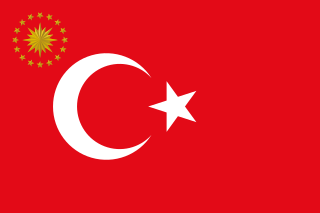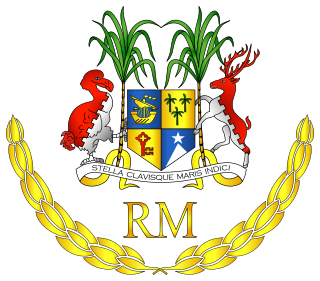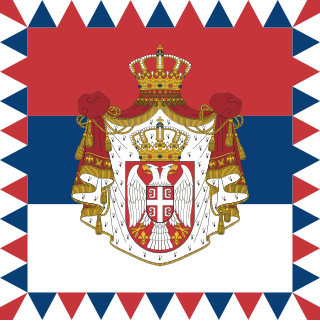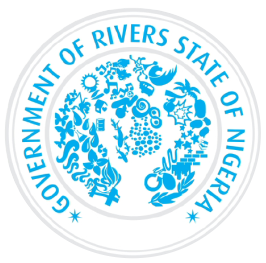
An oath of office is an oath or affirmation a person takes before assuming the duties of an office, usually a position in government or within a religious body, although such oaths are sometimes required of officers of other organizations. Such oaths are often required by the laws of the state, religious body, or other organization before the person may actually exercise the powers of the office or organization. It may be administered at an inauguration, coronation, enthronement, or other ceremony connected with the taking up of office itself, or it may be administered privately. In some cases it may be administered privately and then repeated during a public ceremony.

The president of Turkey, officially the president of the Republic of Türkiye, is the head of state and head of government of Turkey. The president directs the executive branch of the national government and is the commander-in-chief of the Turkish military. The president also heads the National Security Council.

The president of Malta is the constitutional head of state of Malta. The president is indirectly elected by the House of Representatives of Malta, which appoints the president for a five-year term and requires them to swear an oath to "preserve, protect and defend" the Constitution. The president of Malta also resides directly or indirectly in all three branches of the state. They are part of Parliament and responsible for the appointment of the judiciary. Executive authority is nominally vested in the president, but is in practice exercised by the prime minister.

The President of Hungary, officially the President of the Republic, is the head of state of Hungary. The office has a largely ceremonial (figurehead) role, but may also veto legislation or send legislation to the Constitutional Court for review. Most other executive powers, such as selecting government ministers and leading legislative initiatives, are vested in the office of the prime minister instead.

The president of the Republic of Ghana is the elected head of state and head of government of Ghana, as well as commander-in-chief of the Ghana Armed Forces. The current president of Ghana is Nana Akufo-Addo, who won the 2020 presidential election against former president, John Dramani Mahama, by a margin of 4.23%. He was sworn into office for his second term on 7 January 2021.

The President of Pakistan is the head of state of the Islamic Republic of Pakistan. The president is the nominal head of the executive and the supreme commander of the Pakistan Armed Forces. The Presidency is a ceremonial position in Pakistan. The President is bound to act on advice of Prime Minister and cabinet. Asif Ali Zardari is the current President since 10 March 2024.

The President of the Republic of Mauritius is the head of state of the Republic of Mauritius. Mauritius is a parliamentary republic, and the president functions as a ceremonial figurehead, elected by the National Assembly as set out by the Constitution of Mauritius. The current office-holder is Prithvirajsing Roopun. He took the office on 2 December 2019. The president's official residence is the State House.

The prime minister of Pakistan is the head of government of the Islamic Republic of Pakistan. Executive authority is vested in the prime minister and his chosen cabinet, despite the president of Pakistan serving as the nominal head of executive. The prime minister is often the leader of the party or the coalition with a majority in the lower house of the Parliament of Pakistan, the National Assembly where he serves as Leader of the House. Prime minister holds office by virtue of their ability to command the confidence of the National Assembly. The prime minister is designated as the "chief executive of the Islamic Republic".

The president of Nigeria, officially the president of the Federal Republic of Nigeria is the head of state and head of government of the Federal Republic of Nigeria. The president directs the executive branch of the federal government and is the commander-in-chief of the Nigerian Armed Forces.

The president of Serbia, officially styled as President of the Republic is the head of state of Serbia.

The president of Benin is both head of state and head of government in Benin. The Cabinet of Benin is under the authority of the President, and serves to advise and help formulate strategies. It also liaises with ministries and other government institutions.

The vice president of Nigeria is the second-highest official in the executive branch of the federal government of Nigeria, after the president of Nigeria, and ranks first in the presidential line of succession. Officially styled vice president of the Federal Republic of Nigeria, the vice president is directly elected together with the president to a four-year term of office.

The Government of Rivers State consists of elected representatives and appointed officials responsible for the government of Rivers State, Nigeria. Rivers State has a population of about 5 million people, and is one of the 36 states that make up the Federal Republic of Nigeria. The state government is composed of the executive, legislative, and judicial branches, whose powers are vested by the Constitution in the House of Assembly, the Governor and the High Court. The judiciary operates independently of the executive and the legislature. At the local level, elected officials are in charge of local government areas.
The Governor of Rivers State is the Chief executive of the Rivers State government and is one of the governors of the thirty-six states of Nigeria. The Governor is supported by the Deputy Governor, both popularly elected for a term of four years. The Governor, as head of the executive branch, has the power to appoint commissioners responsible for each of the state's ministries, the heads of parastatals, judicial officers and the state-owned bodies with specific regulatory or administrative duties. They cannot be a member of the state House of Assembly.

A chief minister, is the executive head of the provincial government or the " de facto executive", whereas in contrast, the governor is the nominal head, or the "de jure executive" and does everything under the guidance of the chief minister and chief minister according to article 131 of the 1973 constitution shall keep the governor informed on matters relating to provincial government. Moreover, all executive actions of the provincial government shall be expressed to be taken in the name of governor according to article 139. The chief minister is elected by the provincial assembly, and is the leader of the provincial Legislature.
The Government of Ogun State consists of elected representatives and appointed officials responsible for the government of Ogun State, Nigeria. Ogun State has a population of about 2 million people, and is one of the 36 states that make up the Federal Republic of Nigeria. The state government is composed of the executive, legislative, and judicial branches, whose powers are vested by the Constitution in the Governor, the House of Assembly, and the High Court. The judiciary operates independently of the executive and the legislature. At the local level, elected officials are in charge of local government areas.
The governor of Imo State is an elective political position, one of the governors of the thirty-six states of Nigeria. The governor of Imo State is the chief executive officer of Imo state and its executive branch with the assistance of the deputy governor. Fourteen people have served as governor since Imo State was created in 1976: eight military governors, two military administrators and seven democratic governors. The current governor is Hope Uzodinma of the All Progressives Congress, in office since 15 January 2020.
The Deputy Governor of Imo State is the political running-mate of the governor. He/she serves as the second highest executive official after the governor. On 15 January 2024, Chinyere Ekomaru was sworn in as Deputy Governor of Imo State.

The inauguration of the president of Nigeria is a ceremony to mark the commencement of a new four-year term of the president of Nigeria. During this ceremony, some 90 to 95 days after the presidential election, the president takes the presidential oath of office. The inauguration takes place for each new presidential term, even if the president is continuing in office for a second term.















